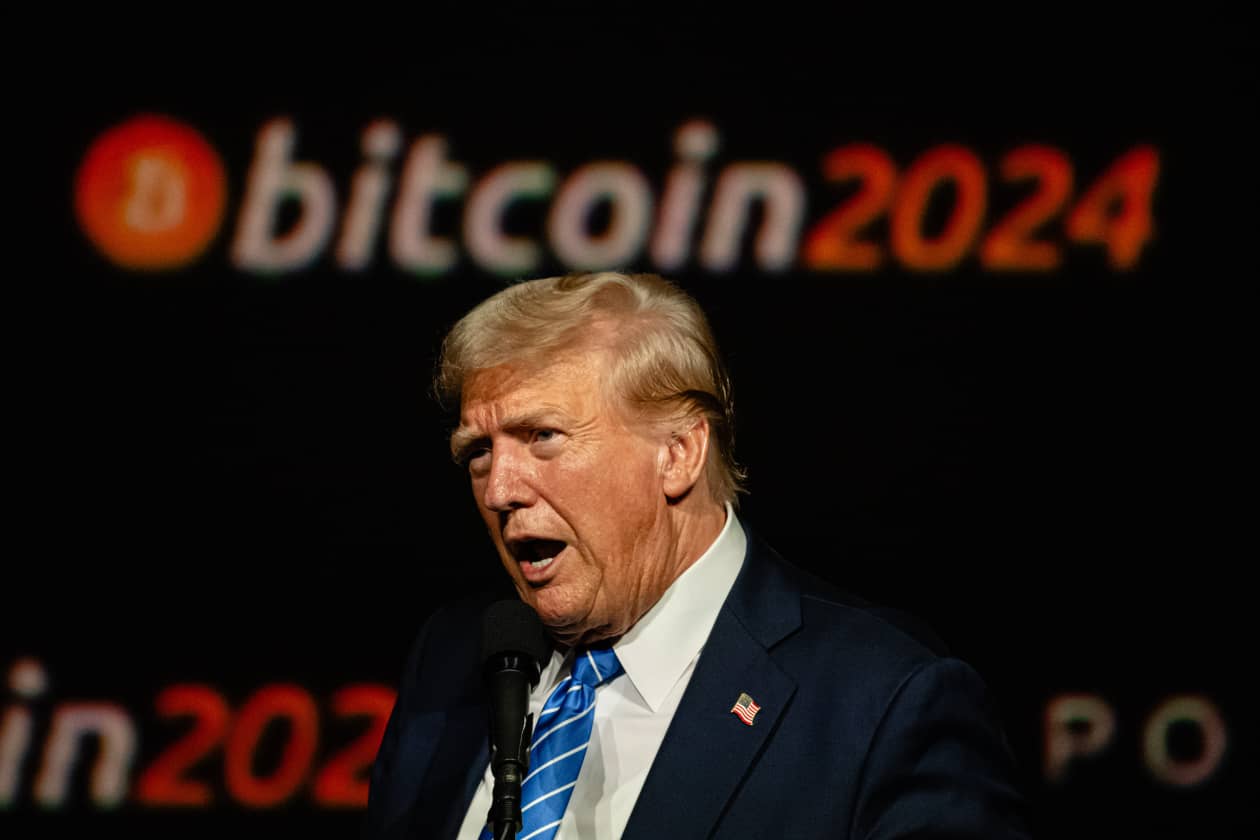As the 2024 U.S. presidential election approaches, former President Donald Trump has made the cryptocurrency market a central theme of his campaign. Once a vocal critic of digital currencies, Trump has dramatically shifted his stance, now positioning himself as a pro-crypto candidate.
During his current campaign, Trump has embraced the crypto community, aiming to attract tech-savvy voters and investors. In May 2024, his campaign announced that it would begin accepting donations in cryptocurrency, a move designed to build a “crypto army” of supporters. Trump has also promised to make the U.S. the “crypto capital of the planet” and proposed creating a strategic reserve of Bitcoin using government-held currency. At a Bitcoin conference in Nashville, he criticized the Biden administration for its regulatory approach, pledging to support the mining, minting, and making of cryptocurrency in the U.S. if elected.
Trump’s pro-crypto stance marks a significant departure from his previous skepticism, where he had dismissed cryptocurrencies as a “scam” and “not money.” His new position reflects a broader strategy to tap into the growing popularity of digital currencies and the potential economic benefits they offer. By advocating for a more crypto-friendly regulatory environment, Trump aims to foster innovation and position the U.S. as a leader in the global cryptocurrency market.
In contrast, Vice President Kamala Harris has not taken a definitive public stance on cryptocurrencies. However, her campaign has shown signs of a potentially friendlier approach towards the industry. Harris, endorsed by President Joe Biden, has engaged with crypto representatives and is under increasing pressure from pro-crypto Democrats to adopt a more favorable stance. While she has not made strong statements for or against digital currencies, her background as a tech-friendly politician from California suggests she might be open to supporting the growth of the cryptocurrency industry.
The differing viewpoints of Trump and Harris on cryptocurrency highlight a broader debate about the future of digital currencies in the U.S. Trump’s pro-crypto stance aims to attract tech-savvy voters and investors, while Harris’s more cautious approach reflects a balance between innovation and regulation. As the election draws nearer, the cryptocurrency market will be closely watching both candidates’ positions, as their policies could significantly impact the industry’s future.




